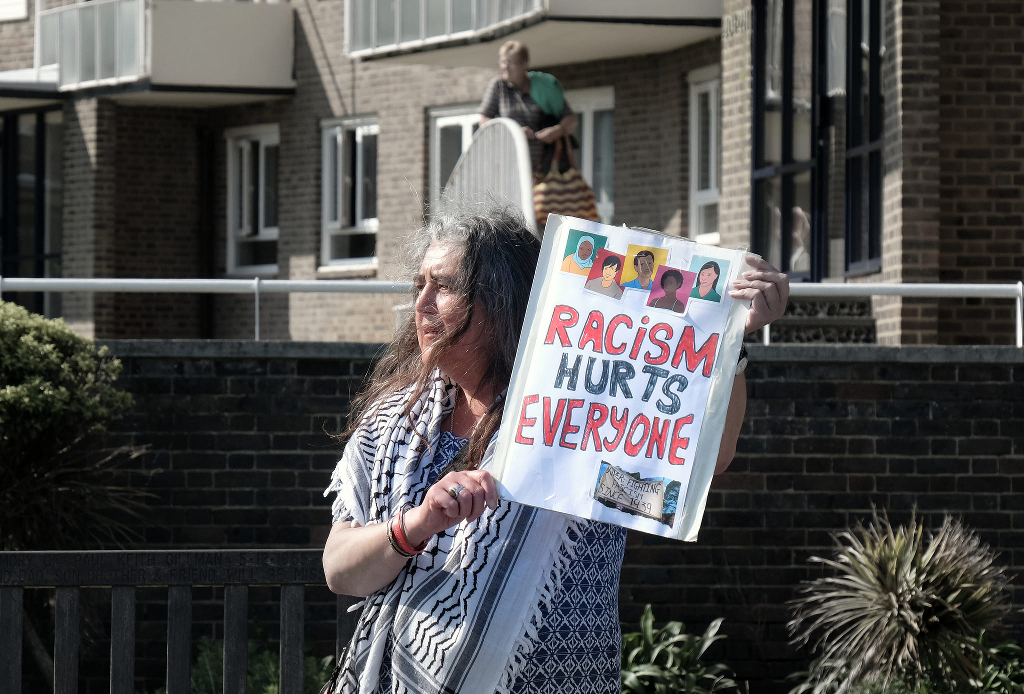Life has become tougher for migrants in the UK this year. When the country voted by a narrow margin to exit the European Union in June, it became clear that nobody quite knew what a ‘Brexit’ would actually look like.
It also became clear that a portion of the country had believed that voting to leave the EU would mean that there would suddenly be no place in British society for the many people who have come to live here from other parts of the world.
They were wrong – we still don’t know what Brexit will look like; it is being argued about daily – but we do know that the country simply could not run if it wasn’t for the migrants who have come to the UK from other countries. Indeed, 10% of our NHS doctors are immigrants from the EU, and more still come from other countries around the world.
However, the ill-informed racism of some of the ‘leave’ voters has led to a horrific rise in race hatred and hate crimes. According to Vice, “over the four-day period from the Thursday of the Brexit vote until the Monday after, we saw a 57 percent rise in hate crimes reported, compared to the same period in May”.
Unfortunately, this was not limited to the week of the vote, and the rise in hate crimes, while slowing, is still far too high.
When the Tories make everything worse
It’s times like this that you’d like the government to come forward with some sensible suggestions and policies that will reduce the stigmatised status of people who are not originally from this country. Ideas that would encourage Brits to embrace those who have come from elsewhere rather than view them as a dangerous ‘other’.
In fact, the Conservative party has ignored the current situation, instead suggesting measures that would only serve to exacerbate the tensions that exist:
Plans to ‘name and shame’ businesses that hire foreign workers
Although this has now been abandoned, Amber Rudd, the Home Secretary, announced an idea at the Conservative Party Conference to force businesses to publish how many of their workers are international, because foreign workers should not be able to “take the jobs that British people should do”.
Rudd suggested that companies should have more pressure to hire British workers and that they should be able to demonstrate, before hiring foreign workers, that they have made sufficient efforts to recruit Brits instead.
Census of schools requires country of birth of all pupils
In the current atmosphere, where hate crimes are high, it is understandable that people are wary of disclosing their immigration status to all and sundry. However, every child in the country has received a letter from their school asking for information about their country of birth, to fulfil a census requirement.
Many people filled in these forms without knowing they were not legally required to provide that information and are now anxious about any potential consequences for their children. Others, aware that it was an unfair and potentially dangerous request, responded more creatively:
Either way, making children at school feel like they are different to their classmates will not encourage the kind of environment that is safe and healthy for learning.
Pregnant women may need to show their passport before giving birth
A scheme is being piloted in the St George’s University Hospitals Foundation Trust where people seeking pregnancy care will be required to show their passport to prove that they are entitled to NHS support. Everybody who is in labour will be asked to prove their citizenship or their right to NHS care.
This potentially dangerous policy could deter people from seeking essential care during their pregnancies, and could create circumstances where health care is denied when evidence is not immediately available.
So… One Day Without Us?
In response to this culture of ‘othering’, an idea has sprouted to demonstrate to the country just how much we rely on migrants’ support to keep things moving. In order to highlight how much migrants contribute to our economy, culture and daily lives, a One Day Without Us protest is being planned.
While it can’t, strictly speaking, be called a strike, migrants and their supporters are being asked to take a day off work on February 20th, 2017, to show how the country functions (or fails to function) without their contributions. For those who cannot take time off for the boycott, demonstrations are being planned across the country that people can join in with on their lunch breaks or after work. Organisers are asking companies that rely on migrant labour to consider closing in support of their staff.
What can non-migrants do to support the boycott?
The organisers of One Day Without Us are asking supporters of migrants and migrant rights to join in with the boycott if they can. Some have argued that this could undermine the message (that the protest will show us how lost we’d be without migrant labour) but it is thought that this demonstration of solidarity is just as important.
Most importantly, non-migrants should follow the lead of migrants on what they can and should do to contribute to and support the migrants’ campaign. Support the action and publicise it when and where you can.
Remember that stepping back from leading roles and encouraging migrants to step up is vital, as it is their voices that must be heard in the fight against hatred and abuse.
Photo: Alisdare Hickson/Creative Commons

